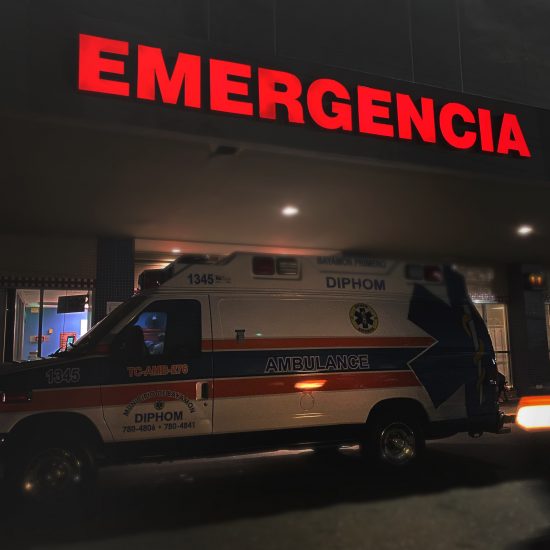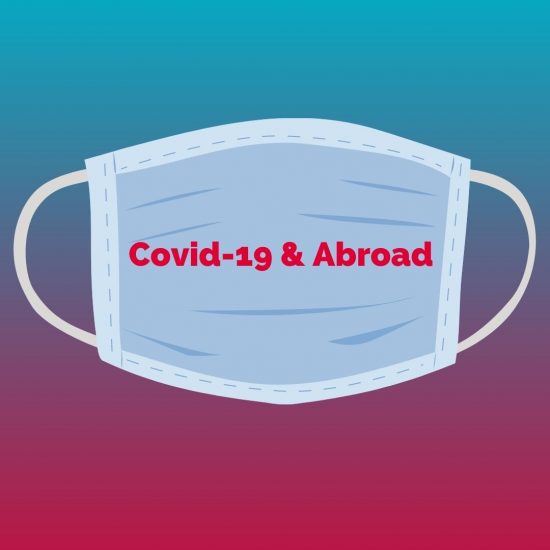Safety Abroad
Safety Abroad Heading link

Being in a new environment and location requires you to learn about the safety and security in the area. It’s important to note that each program location has slightly different local, regional, and national concerns. The Study Abroad Office will elaborate during pre-departure orientation on general safety and security guidelines. During your on-site orientation with our program partners you will receive essential country and region specific information on staying safe and healthy while abroad. We expect all students to conduct themselves in a mature and thoughtful manner, and be mindful of local customs, cultures, and laws. Conducting yourself in a respectful and culturally-aware way will help ensure your safety abroad.
Tips for Safe Travel Heading link
These are a few general guidelines and recommendations you should keep in mind so you can minimize risks abroad.
Know UIC policies
Staying Healthy
- Obtain study abroad health insurance.
- Get a medical examination including all immunizations required for your program destination.
- Bring medication needed with you and have a prescription and doctor’s note to accompany it.
- Disclose and plan for health conditions. Make a plan with your primary care physician(s), including any mental health providers, to manage your health while abroad. Talk to your program staff about accessing health care and local facilities to get care you may need abroad.
- Read about travel stress and culture shock.
- Maintain your normal exercise and diet practices.
- Get enough sleep.
- Take advantage of mental health resources offered through the UIC Counseling Center, including their Mind/Body programs.
- Do not use drugs and use good judgement if you are of legal age to consume alcohol outside the program. Read policies here.
- Surround yourself with healthy and positive relationships.
- Reflect on your identities and how they may impact your experience abroad.
Travel Smart
- Avoid large non-program sponsored gatherings or political demonstrations.
- Always use caution and be aware of your surroundings.
- Keep your cell phone charged and loaded with currency at all times.
- Carry identification and emergency numbers with you.
- Know where you are going and how you are getting there.
- Avoid wearing clothing with political slogans or provocative/offensive language.
- Limit alcohol consumption – be responsible.
- Complete independent travel forms according to your program’s requirements.
- Be aware of traffic patterns. In some countries, vehicles are driven on the other side of the road and others may engage in more risky driving behavior than you may be used to in the U.S. Look both ways and be mindful of motorized vehicles when crossing the street. They may not always yield to pedestrians.
- It is against UIC Study Abroad policy for students to rent or operate a motorized vehicle. Your medical insurance may not cover accidents related to operating a vehicle.
- If you choose to use a ride share service such as Uber, Lyft, or BlaBlaCar, please be confident your driver is safe before entering the vehicle. If something seems off, don’t get in. Use in-app features to share your route with friends. Take a picture of the license plate and text it to a friend, and/or let them know where you are going. In some countries or cities ride share is still illegal, but is still commonly used. Check with your program partner for specific details, such as if you should sit in the passenger seat or the backseat.
- Know or ask your program which taxis are reputable and safe before getting into the vehicle.
Importance of Community
- Always travel with a buddy.
- Do not leave your friends behind at a café or a club; be sure they get home safely.
- Avoid travelling after dark, alone, or in pairs; small groups are advisable.
- If you see something, say something. Look after one another on your program and make sure to raise concerns to program staff.
Safeguard Important Documents and Valuables
- In addition to your original documents, make copies of all documents to take with you and leave copies at home with parents or trusted friend (passport, visa, license, student ID, credit cards, emergency and insurance cards, etc.).
- Keep money, passport, credit card, etc. in a safe hidden place.
- Leave personal valuables AT HOME.
- Do not bring large amounts of cash out with you. You should have enough in case of emergency and separate it in multiple places.
- When using an ATM (and always) be aware of your surroundings. Try to use ATMs near banks as opposed to stand-alone ATMs.
Housing Safety
- Let your roommates or host family know where you are going and when you will be returning.
- Know the emergency evacuation plan for your accommodations.
- Do not let strangers into your housing.
- Do not host overnight guests that are not part of your study abroad program.
- Lock your apartment/residence hall room at night.
- Keep your valuables/cash in a safe and hidden place.
Navigating Cultural Misunderstandings
- Do some research on the cultural practices of your host country before you leave.
- Familiarize yourself with the local laws and norms.
- If you do not understand something, ask your program staff, host family, or local friends and colleagues.
- Understand the nuances of cultural norms such as dress, gatherings, communication styles, gender roles, and time.
- Have a working knowledge of the historical, sociological, political, and economic influences on the country. Be aware and cognizant of other people’s backgrounds and beliefs when discussing sensitive subjects.
Covid-19 Precautions
- Abide by public health guidelines from local and national authorities.
- Listen to all announcements and communications from your program partner and UIC.
- Accept new restrictions and limitations that may differ from your normal lifestyle pre-COVID-19.
- Exercise healthy practices.
- Protect your community and self — wash your hands regularly, wear a mask, reference CDC and WHO guidelines.

Emergency Planning Heading link
While most students who go abroad do not find themselves in an emergency situation, it is important that you know what to do in case an emergency arises while you are abroad. Please review our emergency procedures and protocols and pay close attention during your on-site orientation so that you know exactly what to do in the event of an emergency.

Covid-19 Precautions Abroad Heading link
Keeping ourselves and community safe requires commitment and diligence. Before, during, and after study abroad it is important that you abide by public health guidelines from local and national authorities (CDC, WHO, DOS). These include tips for independent travel, information on vaccinations, and recommendations for exercising healthy practices. There may be new policies in place that require self-quarantines or other requirements to mitigate health risks. It is important that you follow all these guidelines and requirements. Study abroad is likely to look very different than you may have expected. It is important to accept all new restrictions and limitations that may differ from your normal lifestyle pre- COVID-19. Be sure to listen to all announcements and communications from your program partner.
Visit today.uic.edu/coronavirus for additional information, campus updates and support resources for the UIC community.
Resources Heading link
-
Centers for Disease Control (CDC)
The CDC is your best resource for navigating health and safety concerns and preparing yourself appropriately for your travels abroad. You can review Travel Health Notices, review vaccinations and immunizations recommended for your destination, and access travel advice and resources. Additionally, you can research prescription medication regulations in your destination. We recommend you consult with a physician or the UIC Travel Clinic on these matters as well.
-
U.S. State Department Travel Advisories
Travel Advisories are announcements for events the U.S. State Department thinks travelers should know about when planning travel to a country. There are four levels of advisory. The Study Abroad Office does not support travel to any country in Level 4 [Do not travel]. Travel to countries listed in Level 3 [Reconsider Travel] can be petitioned. Contact the Executive Director of Study Abroad, Kyle Rausch, kcrausch@uic.edu for more information.The Worldwide Caution is a general announcement from Washington, D.C. advising U.S. citizens about the general risk of international travel, especially from acts of terrorism. -
Diversity Abroad Articles & Resources
Each country approaches diversity and inclusion in different ways and that country’s history, culture, politics, economy, and social relations may influence the local population’s implicit biases towards certain identities. It is important for your mental and physical health that you familiarize yourself with these types of potential encounters in order to stay safe and healthy while studying abroad. Please recognize that not all countries approach these topics the same way as the U.S. so there will likely be some adjustment in this area. Program staff are trained on helping students navigate these cultural differences and will serve as resources along with the Study Abroad Office staff should you need it. Please read through some of these articles from Diversity Abroad to learn more about your host country.
-
STEP & Embassy Notices
Embassy Notices are announcements from a U.S. embassy or consulate in a specific country. These announcements update citizens about a possible event that may cause disruptions in parts of the country and advise citizens on maintaining their safety. You will receive Embassy Notices if you sign up with the Smart Traveler Enrollment Program (STEP). These are especially useful for navigating political and social unrest, potential acts of terrorism, and major health concerns.
-
World Health Organization (WHO)
Access data and information regarding global health matters from the WHO.
-
UIC's Response to COVID-19
Visit the official UIC COVID-19 response website to learn more about how the university is supporting the UIC community during the pandemic.